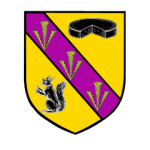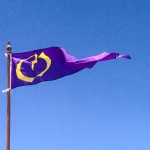Greetings friends!
There was/has been recently a hotly debated subject(s) on how a Peer could be evaluated for inclusion into the Omnibus Peerage in the ‘Martial Peerage’ group. I think it’s an eye opening discussion with many voices. Many of which have obvious merits. The intent of this post is to spark discussion on the merits or pitfalls of the suggestions. This is not an endorsement of any or all of them, simply to explore the possibilities. Please realize we are not there yet, we need to get this passed, but the conversation is a good one.
Apples and Oranges
One of the points made, standardized groups (eg: Order of the Grey Goose Shaft, Companion of the Yew Bow). How can we select the best of a group in on Kingdom if the barriers to entry are far lower than another Kingdom? Do other Kingdoms have an equivalent where the standards are far lower or higher? Such as a RR score of 80 minimum versus 100 kind of thing (if considered)? Are members in one Kingdoms group far more knowledgable and proficient? Could we do ourselves a service by attempting to standardize* across the known world? Is inclusion in these groups required?
What else to consider.
We aren’t primarily an arts or service Peerage, so considering that arts or service aspects are certainly not a detriment to inclusion, but is this the target? If we focus on the arts for instance are we not sending a message that the individual more belongs in the Laurelate? Do we argue against ourselves by weighing heavily on arts and/or services? After all, again, a Knight is usually best known for their fighting prowess, not their dancing, service, or leather working. Though the aforementioned all speak to a well rounded individual. Could we not conclude that measuring skill in the particular weapon form is appropriate? (Clearly this isn’t always the case, in all of this, I am not speaking in absolutes. There are always exceptions)
Using scores as an indicator.
It seems when this gets brought up, it makes people defensive. Though score is by no means the sole or only factor, ones Royal Round rank might rightly be part of the discussion. It could be evidence there is provable participation in shooting events, as well as a willingness to improve ones shooting. If there is no recorded scores in anything, how else can we gauge participation and prowess? Can we make the assumption that generally a Peer in a martial activity (in their prime condition) is a person who will beat anyone at least half the time in their respective art (or whatever metric you may choose)? In some martial communities that would be included, there are contests to win, but perhaps not tourneys. But aren’t tourneys simply an abstraction for scores?
There is the argument that a Brewer doesn’t have show scores to be a Laurel, but one can assume a Brewer has entered A&S competitions, shown documentation, and defended/showcased their work and knowledge in some way. If this is translated to the Martial Peerage, what is the equivalent? Might it be RR scores? Wins in tournaments?
The case has been heard from others that this is a Martial peerage, therefore prowess is a ‘requirement’. Take for instance a Knight, they must show skill in all weapon types right? How can they show said skill, but by entering tournaments or the like?
The checklist.
It seems there is universal agreement there should never be a checklist of items one must do to be considered. Though our opinions vary widely on what that checklist doesn’t include, (if you get my meaning). Though there never should be one, one does kind of exist right? A Knight must fight with heavy weapons, wear armor, etc. There always exists a ‘list’, whether the ‘boxes’ are all ticked off or not is individually determined by the experience, wisdom, and intelligence we bring to bear on the decision process. I’ve never heard of a Knight that never struck a blow, though It may be possible (remember that we are never speaking in absolutes here).
Personal Note:
Friends I won’t hide the fact that I don’t know it all. There is a lot to learn about this process and the Peerage orders in general. By having discussions such as this, we are allowing people afflicted with ignorance, such as myself, a way to learn more in context. I hope this can be spark for good constructive conversation. This discussion doesn’t go into the other general PLQs that might well be considered for inclusion. This is more directed to the prowess of the individual.
Closing.
Please share your thoughts, help inform our friends if thee is ignorance, guide us if we are lost. Please share your thoughts by commenting below! I look forward to any conversation.
Thank you friends!
 YIS respectfully,
YIS respectfully,
Lord Cameron de Grey
Or, on a bend purpure between a wheel of cheese and a squirrel sable, three pheons palewise Or
* there is some movement in this direction already
More on the existing peerages: http://www.sca.org/docs/pdf/govdocs.pdf
Martial Peerage Page

While you bring up some interesting thoughts/ideas here I see a few issues. While this proposed peerage does resemble either the laurette or pelicanette in that it represents a variety of activities I fear that when we use the laurette comparison we venture into areas that do not apply, i.e. documentation, research. A squire is not made a knight for their documentation or research. HOWEVER, documentation and research are added qualities of an individual I would think suitable for peerage.
The next issue of discussion is display of prowess and how to measure it. While I have been an advocate for consistency SCA wide in the activities represented I understand the issues of tradition associated with doing that. Thus should it be a requirement that an individual elevated to this peerage-yet-to-be have a Royal Round score of 80 or higher when they are known as a “good” archer, teach, run archery at events, host practices, make and display archery equipment and serve their community in many other ways? ON the other hand IF someone were a peer of this peerage in archery I would expect that they would be known as one of the better archers to frequent a range.
All in all I think the real evaluation criteria of suitability for elevation to this peerage-yet-to-be would be the PLQs and what the individual is most known for. I have seen an individual be elevated to knighthood for his tent making skill. The populace said a resounding “HUNH????”. I have also seen an individual be elevated to knighthood who did not have a personna, registered device, or in any other way represent what the SCA is supposed to be other that “swing a good stick”. And the populace smirked and did not think highly of the Order.
But in all truth, elevation to any peerage, existing or yet-to-be, is NOT our choice. It is the choice of the sitting King and Queen. The Orders can poll and make recommendation but ultimately it is up to the Royals for the final decision. That is the game we play here. What I believe we can do is present a unified face SCA wide to be seen as a cogent group doing a particular group of activities. Along with this I believe if we maintain PLQs in our actions and assist in activities other than our own and use inclusive activities while doing our activity ultimately we will be seen as peers and possibly elevated to such.
My two silver coins worth,
Christophe of Grey
Atlantia
From Susan Carroll-Clark on FB:
One thing to note is that with all of the existing Peerage orders (and many of our existing high-level martial skills Orders), nothing exists in a vacuum. The most important thing when considering prowess is whether the candidate is up to the standards of the other members of the Order (and those standards can and do vary somewhat, depending on specialization). Using my own experiences in my kingdom’s Grant-level Order and as a member of the Order of the Laurel, we really rely on perceptions and evaluation of the candidate by as many other members as possible. That, more than tourney scores of any kind (or A&S competition results, for Laurels), is what forms the basis of our recommendations. I hear the armoured fighters and rapier fighters in our Grant-level Order, for instance, talking about how various candidates do at fight practices, in teaching situations, and in melees. Tournament performance is also discussed, but not so much placement in the tourney as to whether the candidate gave a good fight and showed skill. Is this subjective? Yep, you betcha, but it means we come at it from a variety of different perspectives. One other thing to note here is the variation in the way we conduct Peerage meetings from kingdom to kingdom. I live in a kingdom that does numerical polls and has an active consideration list of maybe up to dozen people tops (for the Laurel and Pelican). Poll numbers go to TRM, who make the final decision. Recommendations need not be unanimous. What this means is that there is no single “one true view” of what makes a Laurel or Pelican, but rather the opinions of a lot of different members coalesce into a consensus.